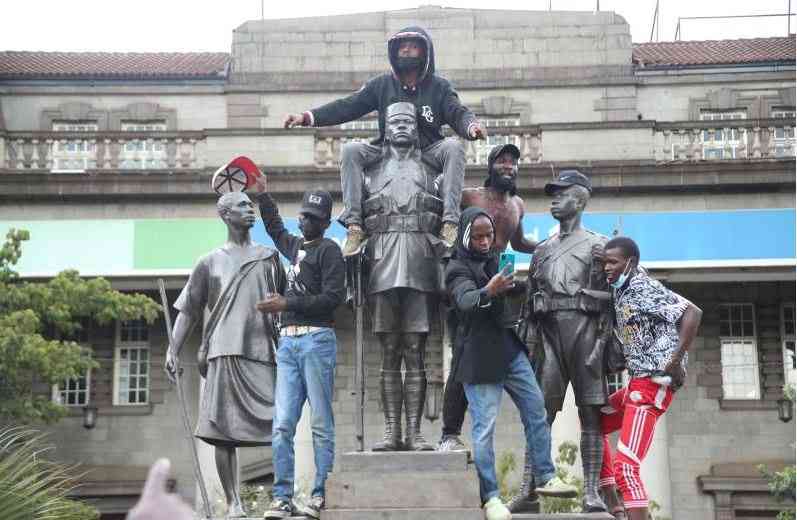
I knew things were elephant when tin animals strayed from their habitat in Nairobi’s Uhuru Park and wandered on to Kenyatta Avenue, retaining remarkable poise and calm even as the world around them dissolved in a miasma of tear gas and pandemonium.
In Parliament, things were equally elephant; there was a stampede as other big-bodied fellows scrambled out through a tight underground tunnel. I learnt afterwards those were the waheshimiwa sneaking out like thieves at night because the true owners of the house, the citizens, had made their way to town.
But what broke my heart was the unsightly razor-wire cordon thrown around the Nairobi State House, newly painted and garish, blooms of colour calling for attention, only to be garlanded with a crown of thorn.
I suspect this must have crushed Prezzo Ruto even more, not just to witness the defilement of this munificent building, but because he had spent so much on renovations, even though he was about to embark on more renovations, having received nearly Sh1 billion, just the other day.
This week, the so-called House on the Hill acquired yet another look: the razor wire and the spikes gleaming menacingly in the morning light, as mean-looking men pranced in their black boots and batons aimlessly, unsure if they were going or coming.
Their mission wasn’t to watch over the house because its owner was away; they were there to ward off those who had come to expel its resident. Since Prezzo Ruto is a well-read man, I suspect he’s re-reading the French philosopher Michel Foucault and his contemplations about the limits of power.




But since I am not as learned as Prezzo Ruto, he is a PhD, after all, whose field research was conducted in choppers, there is a more poignant point that these barricades, unprecedented and unpresidential, gesture towards.
First off, if I had a billion shillings to splurge on dwellings I cannot sleep in, or be unable to sleep at all, then I’d say it’s not worth it. But since I am not a politician, what would I know about politicians’ sleeping manners? Maybe they don’t need to sleep like the rest of us.
The singular politician who spoke about his sleeping ways, and who was an older resident of that very house, was good old Jomo, when he took charge in December 1963. Jomo reportedly couldn’t sleep in that house because beberu daemons kept visiting him in his dreams.
All Jomo did was to swish his flywhisk and issue expletives in Gikuyu, before retreating to Gatundu. He commuted from his village home for the 15 years he was in power.
Thankfully, Prezzo Ruto doesn’t have that long to rule. I shouldn’t put it very bluntly, given the sensitivities surrounding his tenure, but I mean it as a compliment. He doesn’t have to agonise about sleeping in that house for long. Consequently, I will not invoke those slogans youths in the streets have been chanting even though I find the street lingo of notam, halftam, and wantam utterly hilarious.
From the foregoing, I am at a loss over what to make of this moment, hence my speculative explorations of Foucault, Gikuyu mysticism, and street gossip. I do feel, however, that teargassing mourning mothers who wanted to lay wreaths for their departed kin was both crass and criminal.
But the barricades around Parliament, to keep the citizens from the People’s House, appropriately reflected its capture by the Executive. As for the State House, symbol of the presidency, garlanding the residence by razor wire, reflects diminished State power and legitimacy.
It calls to mind an often-misused quip about all sovereign power as belonging to the people. The people displayed that eloquently this week.
Stay informed. Subscribe to our newsletter